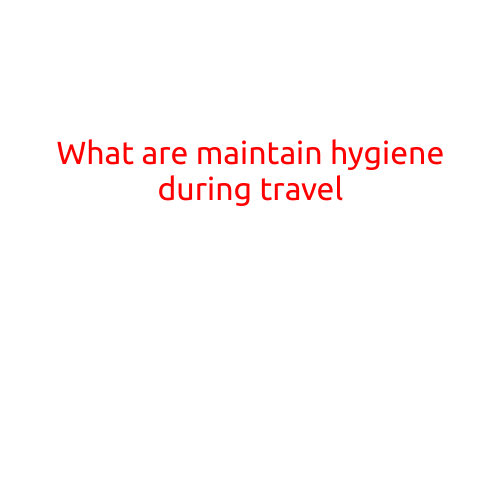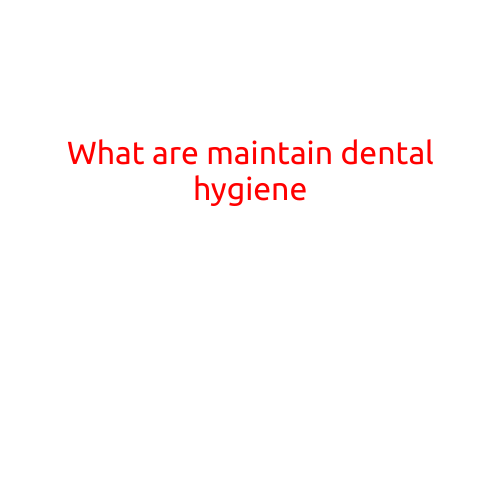
What are the Best Practices for Maintaining Hygiene during Travel?
Traveling can be an exciting and rewarding experience, but it’s essential to prioritize your health and well-being during your trip. One of the most critical aspects of staying healthy while traveling is maintaining good hygiene. In this article, we’ll explore the best practices for maintaining hygiene during travel and provide you with some valuable tips to keep you safe and healthy on the go.
Wash Your Hands Frequently
Washing your hands regularly is one of the most effective ways to prevent the spread of illness. Make it a habit to wash your hands:
- Before eating or handling food
- After using the bathroom
- After blowing your nose, coughing or sneezing
- After touching animals or their waste
- After having contact with someone who is sick
Use soap and water for at least 20 seconds, especially after using the bathroom or before eating. If soap and water are not available, use hand sanitizer.
Stay Hydrated
Drinking plenty of water is essential for maintaining overall health, including your digestive system. Dehydration can lead to constipation, fatigue, and even more serious health issues. Aim to drink at least eight glasses of water per day, and avoid sugary drinks or caffeine that can dehydrate you further.
Stay Clean
Keep your surroundings clean and hygienic by:
- Frequently cleaning your hotel room, including the bathroom and kitchenette
- Using a travel-specific cleaning kit to disinfect surfaces and objects
- Avoiding touching your face, especially your mouth, nose, and eyes
Personal Hygiene
Maintain personal hygiene by:
- Showering or bathing regularly, especially in hot and humid climates
- Wearing clean clothes and changing them frequently
- Brushing and flossing your teeth regularly
- Applying deodorant or antiperspirant to stay fresh
Avoid Close Contact
Try to avoid close contact with people who are sick, as this can easily spread illnesses. If you’re in close proximity to someone who is coughing or sneezing, step back at least three feet to reduce the risk of transmission.
Pack Hygiene Essentials
Don’t forget to pack essential hygiene items in your carry-on luggage, such as:
- Hand sanitizer
- Face masks (if traveling to an area with high levels of air pollution or disease outbreaks)
- Antibacterial wipes or sprays
- Moist towelettes or baby wipes
- Prescription medications and necessary vaccinations
Stay Informed
Stay informed about local health concerns, such as disease outbreaks or water contamination, by:
- Checking official government websites or health organizations for updates
- Registering with your government’s travel advisory service
- Asking your hotel or tour operator about local health concerns
Conclusion
Maintaining hygiene during travel is crucial for your health and well-being. By washing your hands frequently, staying hydrated, staying clean, practicing personal hygiene, avoiding close contact, packing hygiene essentials, and staying informed, you’ll be well-equipped to handle any health challenges that may arise during your trip. Remember, it’s always better to be safe than sorry, so prioritize your health and take the necessary steps to maintain good hygiene while traveling.





